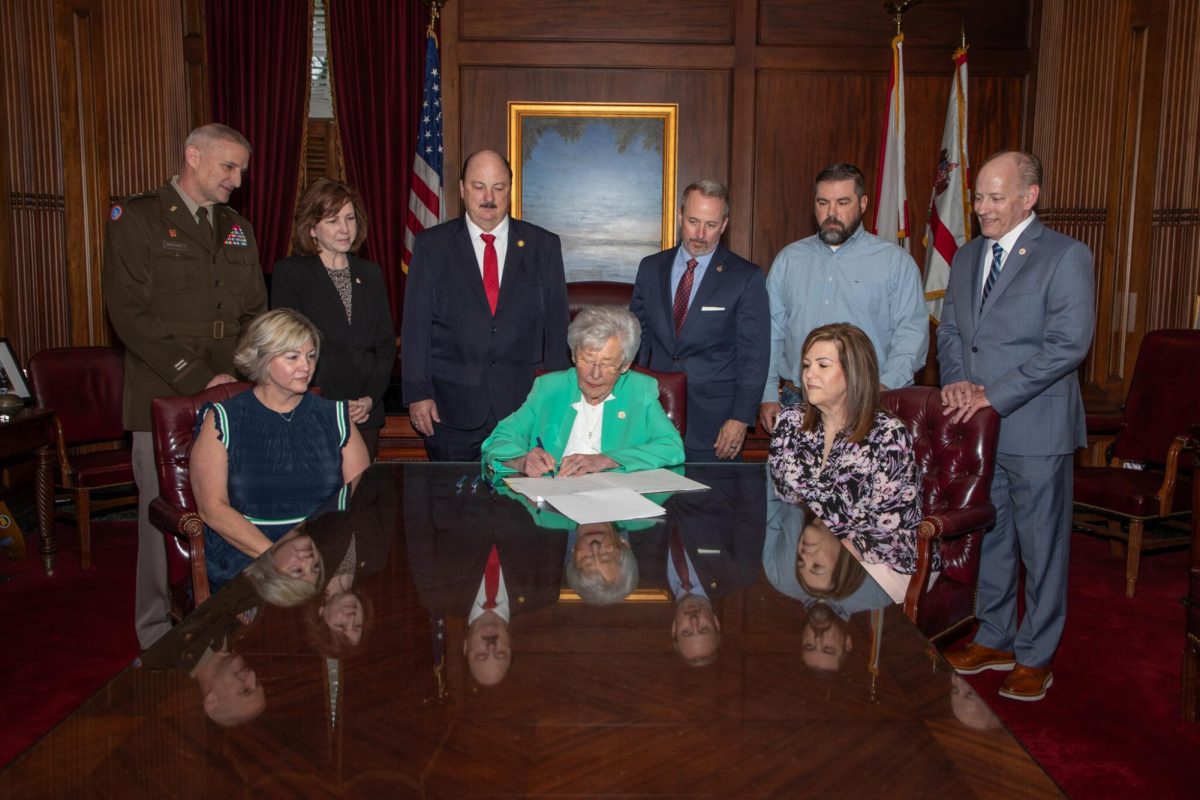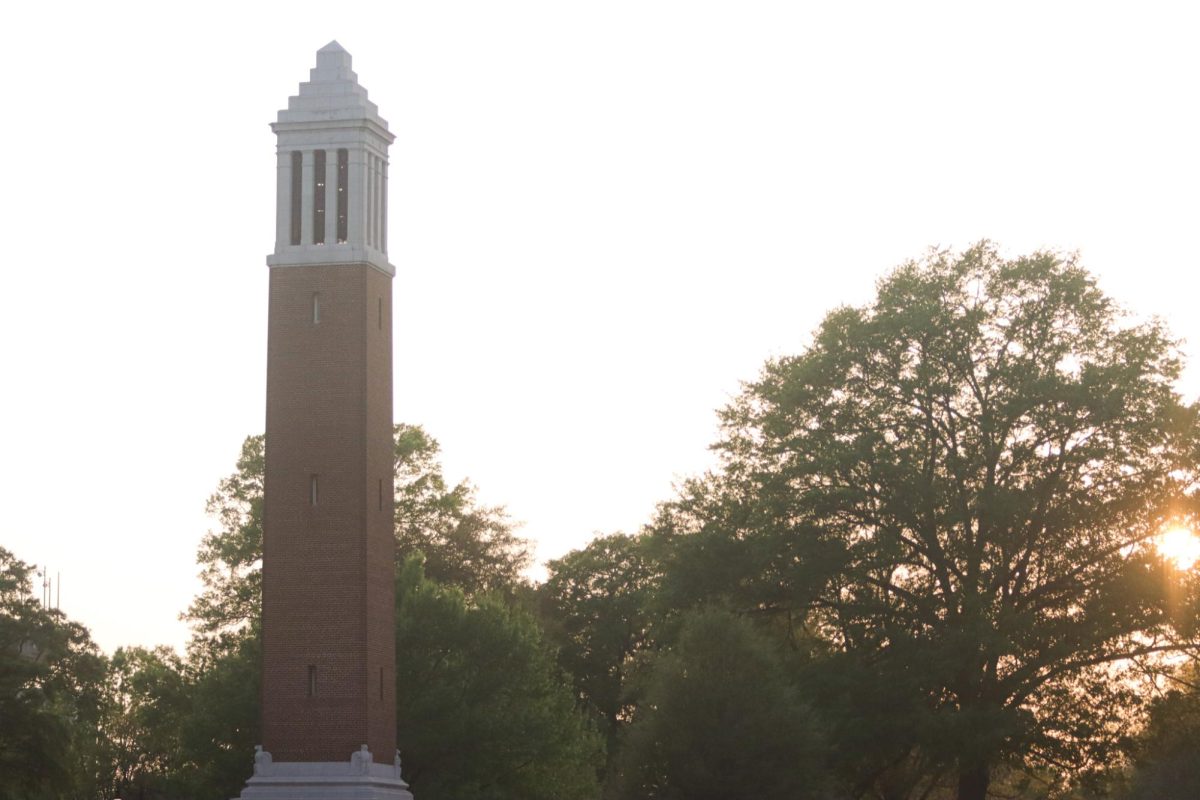Former topless car wash owner Derrick Belcher petitioned for the state of Alabama to secede from the United States of America two weeks ago, but several Uniersity of Alabama history and political science professors say the strains that complete budgetary independence from the federal government could pull the bottom out from under his plan.
On Nov. 9, Belcher, a resident of Chunchula, Ala., filed a petition on whitehouse.gov, requesting the Obama administration “peacefully grant the state of Alabama to withdraw from the United States of America and create its own new government.” According to whitehouse.gov, petitions posted on the website must reach 25,000 virtual signatures within 30 days to elicit a response from the administration. As of Saturday, Belcher’s petition had acquired 30,192 signatures.
However, history professors and local experts around the University are quick to put that number in perspective. It’s 71,629 fewer people than can fit in Bryant-Denny Stadium, after all.
“The federal government would simply not allow a state to secede,” George Rable, Charles Summersell chair in Southern history, said in an emailed statement.
Hypothetically speaking, however, if the federal government did approve the petition’s demand, Rable said the state legislature would have to issue a call for an election of delegates to a convention to make the decision as they did in 1860-61. Voters would choose delegates and then the convention would decide whether or not to secede.
Richard Fording, professor and chair of the political science department, said such convention approval would lead to adverse conditions for the state and its residents.
“The state of Alabama depends heavily on federal revenue that is generated from other (richer) states,” Fording said in an emailed statement. “If Alabama were to secede and lose that revenue, then the state would have to either eliminate most social programs or levy taxes that are considerably higher than what Alabama citizens currently pay. Assuming the state would choose the former, the outcome would be disastrous. It would not be long before Alabama would resemble a developing country in terms of indicators of well-being and public health. People would flee the state in droves, exacerbating the problem.”
Another part-time history instructor, David Schroeder, said the viability of secession seems unlikely due in a large part to the federal dollars most “red states” depend upon so heavily.
“All of the states south of the Mason-Dixon line, with the exception of Texas and Arkansas, receive more in federal aid than they pay in taxes, so would a state’s citizenry pass up the ‘free’ money?” Schroeder said.
States would lose all of the money paid into programs such as Social Security, Medicare and even the U.S. military, Schroeder said, and the benefits these programs provide in old age and in national security would be lost with secession.
“The countering argument would be that the states already pay into federal programs and pay for the warplanes and warships in the U.S. military and that those dollars could be diverted to the same type of programs in a ‘new nation’; however, the existing money paid into the programs would be lost, and I doubt seriously that the U.S. government would return them to the citizens of a seceding state,” Schroeder said.
The federal government spent more than $56 billion in Alabama during the 2010 fiscal year, according to the U.S. Census Bureau’s Consolidated Federal Fund, and the State General Fund enacted budget for the same fiscal year was nearly $1.8 billion. The two funds together comprise the state’s total operating budget for 2012’s fiscal year.
“Overall, it is difficult to imagine how an independent nation of Alabama would function,” said political science professor Anne Williamson. “We would be a country with high poverty and unemployment and no national government to help ameliorate these conditions; we would have to provide for our own national defense (rather than sharing in the defense provided for the entire U.S.). Our elected officials would be inundated with the need to govern a sovereign country and all that entails rather than being able to focus on Alabama as a state within a larger federal system.”
Schroeder said the results of secession would be difficult to predict as there are so many variables that come into play when assessing a state’s ability to operate individually.
“What would happen is difficult to predict given the secessionist movement isn’t taken seriously by the press or politicians,” he said. “What would happen would depend on whether the President or Congress acted with force, but we really won’t know until President Obama is asked, and I suspect that won’t happen until individuals treat the renewed talk of secession as legitimate rather than sour grapes over the election results.”
Andrew Bass, a sophomore majoring in sports broadcasting, is not one of those 30,000 but said he wanted to be. Bass said he did not “look into it enough” to determine the proper method to include his name on the petition, but he thinks Alabama’s secession, “while not ideal,” would give his parents the best opportunity to continue to succeed in their current employment.
“As a conservative, I believe President Obama is not leading this country in the direction it should be headed for many reasons,” he said. “My parents are both employed by [insurance provider] Blue Cross and Blue Shield of Alabama, and with the current Obamacare plan and the downfall of privatized insurance that I believe will follow in the coming years, it is my understanding that my parent’s company, the company that supports me and my college tuition, will be led on to have layoffs and potentially be shut down without immediate change.”
However, Bass said it would be difficult for an independent Alabama to function properly, and he gave the petition for the state’s secession “absolutely no chance” of being cleared by the federal government.
Parker Graham, the secretary for the SGA senate, said he also believed the chances of Alabama actually seceding to be unlikely.
“The petitions should only serve to raise awareness in Washington of a large portion of our nation’s discontent with the president,” he said. “I by no way support the actual act of seceding because it left our country in shambles once, so why ever do it again?”








